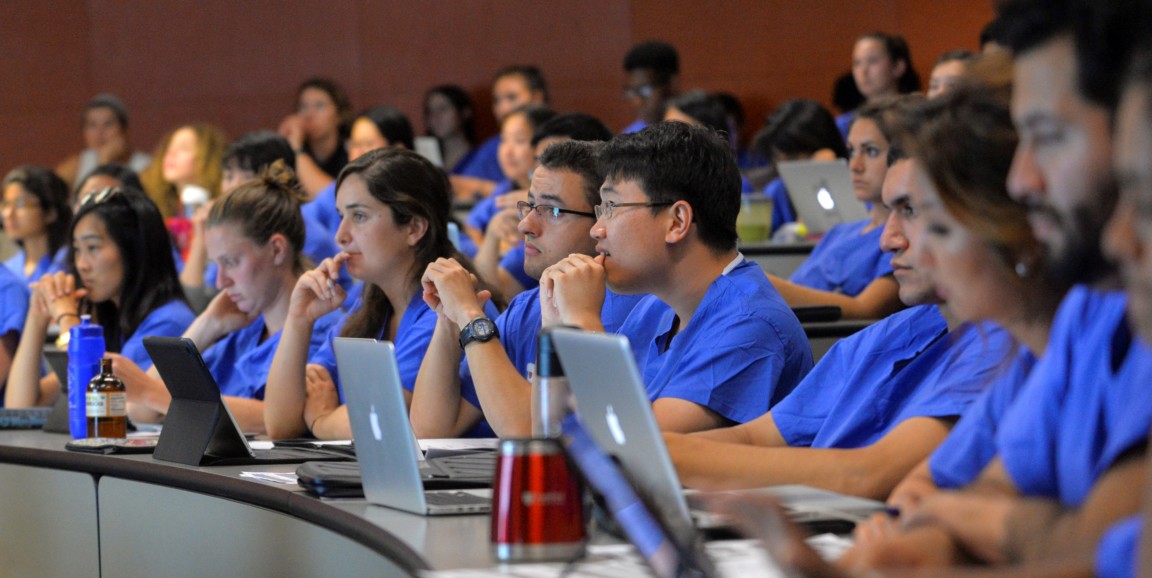A new academic year has begun, and another fresh-faced group of medical students are embarking on many years of training. To learn more about how they cope with the deluge of material and stress, I recently spoke with Lisa Medoff, PhD, a learning strategies specialist at Stanford Medicine.
What are the most common fears of medical students?
I think the most common fear is thinking, 'Oh my goodness, somebody made a mistake by letting me in here, I'm not good enough to be here.' We call that the ‘impostor syndrome’ and really try to address it because nearly everyone feels that way at some point.
Also, often, medical students will have this feeling of 'I have to memorize everything perfectly or else all my patients are going to die.'
But I reassure students that it's not like you're going to take some classes and then get stuck somewhere with no support, expected to practice medicine. You just have to trust the process in place.
What challenges do medical students face?
A lot of our students come in after having taken a few years off of school and suddenly they have to memorize a lot of information very quickly. It's a really stressful adjustment and can be pretty overwhelming.
Then there’s Step 1, which is the first hurdle of the licensing exam after the second year. That exam used to be pretty much past/fail but now residencies are looking at it more. Students used to study for it during their dedicated two-month study period, but in the last few years we’ve seen that they're worrying about it all of their second year.
There’s additional pressure that’s starting earlier and earlier. It's almost like the equivalent of middle schoolers starting to be concerned about SATs.
What would you say is the hardest part of medical school?
I think if you asked every student you'd get a different answer, but from the perspective of the students that I work with is this: In undergrad, you could always walk into a test and know you are 100 percent prepared. That might have required an all-nighter and lots of memorization. But you could pretty confidently walk in and say, I know everything there is to know.
But in medical school, there's just so much information. And so I think that feeling of uncertainty, no matter how much hard work and time you put in.
Later, students may want to take advantage of unique opportunities for learning — that’s why they came to Stanford, after all. There are so many amazing things that we require or recommend, like doing research or taking elective classes or shadowing or getting involved in student groups or doing things on main campus.
So there's a constant struggle to balance 'What am I missing out on?' with 'Am I doing too much and not having enough time for classes/exams/boards?'
Are there any particular traits that the most successful students share?
I don't know that there are. Sometimes I'll have a student come one hour and talk about their roommate or their study partner and say, 'Boy, that person just doesn’t spend very much time studying. They can read something once and memorize it or they just go to lecture and pay attention and it's in their brain. I have to spend all these hours studying.'
And then the next hour, their roommate or study partner will come in and say, 'Gosh, it's so easy for me to pick up and memorize stuff, but I don't have the clinical skills or the ability to connect like that other person does.'
Of course, everything I do is confidential but I always want to say, 'Oh my gosh, I wish you all would share so you could know that everyone struggles!'
And so I encourage that when somebody is struggling to be more vocal about it and say, 'I'm struggling with this. Can anybody help me?'
Can people with learning difficulties or challenges go to medical school?
Absolutely. We have had students with diagnoses of different learning disabilities, dyslexia and ADHD, anxiety, chronic illnesses or physical disability, anything that might require accommodations and we make sure they get the accommodations they need.
I am a big believer that just about anybody can do anything they want. Sometimes it might take them longer or sometimes it might require extra support, but if you want something and you're willing to work for it, I think you can do it.
Photo by Rod Searcey




